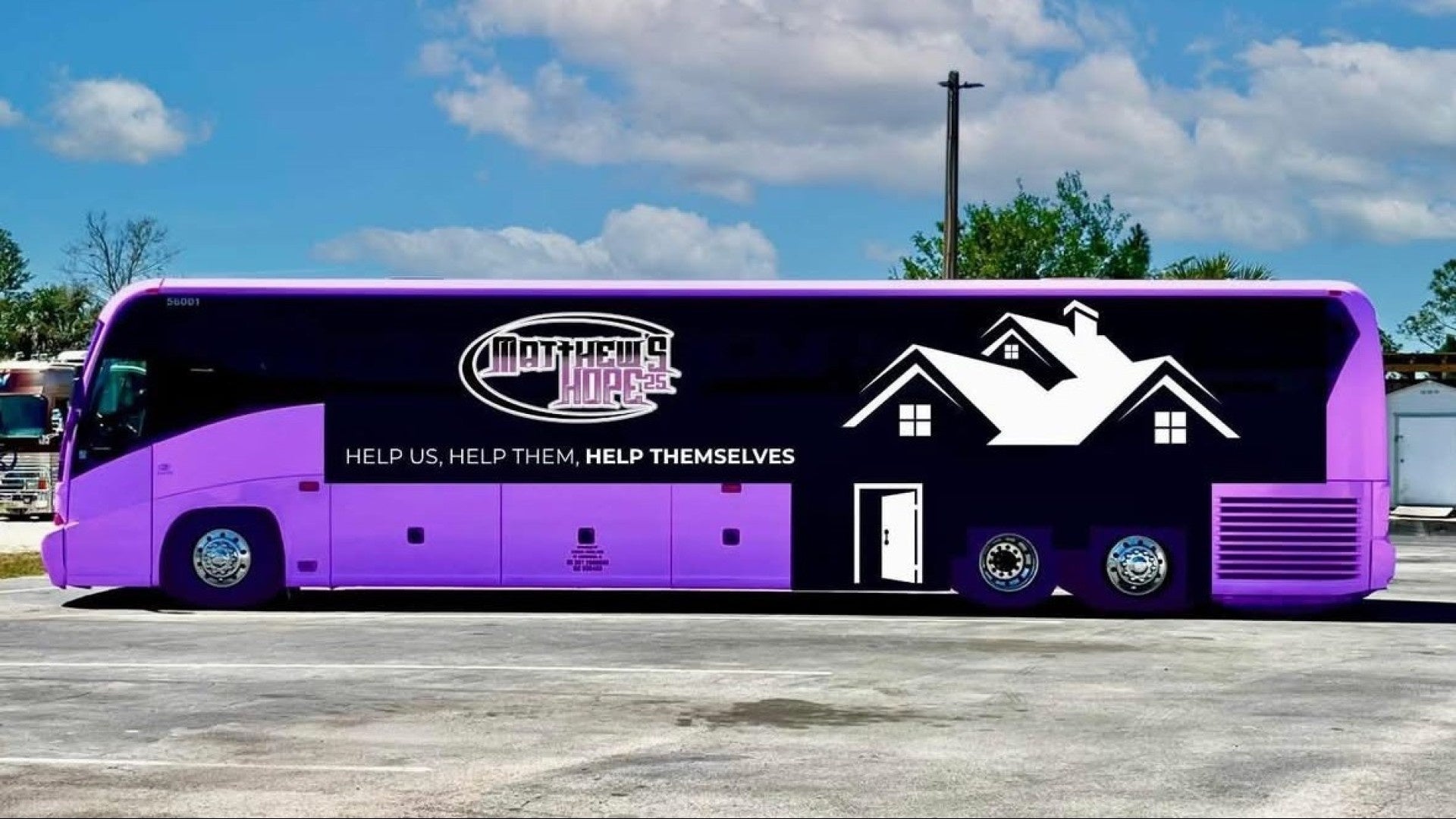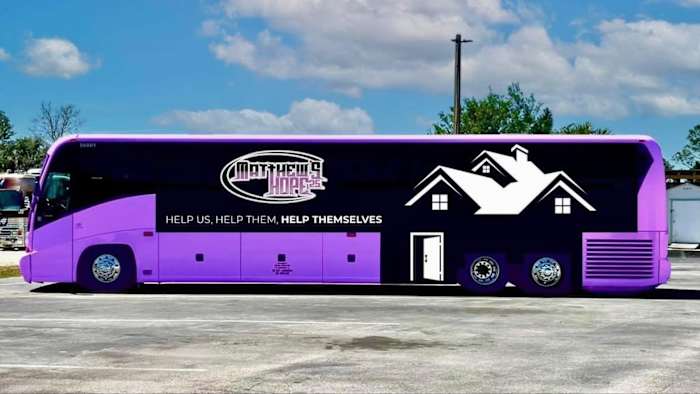Share this @internewscast.com

VERO BEACH, Fla. – And then there were two.
A second 407 CONNECT bus, crafted to offer safe overnight accommodation for Orlando’s homeless community, is nearly ready and is expected to be operational within the upcoming months.
The city of Orlando, the Community Redevelopment Agency (downtown Orlando), and the Christian Service Center for the Homeless have collaborated to acquire and manage the two buses as mobile sleeping shelters for individuals without homes. The first 407 CONNECT bus, highlighted in an exclusive feature by News 6 earlier this month, reached its final construction phase in early July.
“The goal for starting service remains this summer,” stated Bryan Hampton, director of development and communications for the Christian Service Center for the homeless. “The city is planning a ribbon-cutting ceremony on August 20 at City Hall.”
The idea for 407 CONNECT was brought up before the city council earlier this year, just weeks after Orlando abandoned plans to open a large shelter in the SoDo district. Mayor Buddy Dyer stated that the previous location, a vacant space in Orange County’s Work Release Center on West Kaley Street, was not feasible.
The two buses are modeled after the Dignity Buses pioneered by the nonprofit ministry The Source of Vero Beach. In addition to building the Orlando-bound buses, The Source has been running its own homeless sleep shelter program since March 2021, the first of its kind in the U.S.
“For training, we are working closely with The Source to watch how they do their onboarding in the evenings and off-boarding in the morning,” Hampton told us. “We have lots of questions: Showers? Towels? Sheets and laundry? Slippers? How many pet kennels? It’s an ever-growing list,” Hampton added. “The training process will be pretty intensive – we are looking for best practices from The Source.”
Christian Service Center members have already been to Vero Beach to shadow staff members from The Source.
“We are the only ones in the country who build out buses for this specific use,” said Tony Zorbaugh, executive director and CEO of The Source. “The Orlando project will be the fourth time we’ve deployed buses outside of Vero Beach.”
Over the last four years, The Source has built five sleep buses: three operate in Vero Beach (one of those three used to be in Palm Bay), one services Woonsocket, Rhode Island, and one more, nicknamed The Night Fort, is operating in Bourbonnais, Illinois (Kankakee County just outside of Chicago). The two Orlando buses will be the sixth and seventh buses built by the nonprofit.
“The interiors are stripped, and the sleeping pods are then fabricated by people who are part of the Source’s family who themselves were once homeless or in need of our services,” Zorbaugh told News 6.
Both 407 CONNECT buses will feature 10 bunk sleeping pods on each side (20 in all) with a 21st spot at the back of the bus that is handicap accessible. With the two buses in operation, up to 42 people could be provided with a safe place to sleep each night. The cost to purchase each bus was $175,000, with annual operating expenses estimated at about $1 million.
Orlando’s buses are 45-foot 2006 VDL Van Hool C2045 motor coaches bought with funds from the 2021 American Rescue Plan Act that were purchased using part of the program’s $3.44 million allocation.
“We have a three-year budget,” Hampton said. “$1,359,330 for the first year, $1,026,172 for the second year, and $1,056,995 for the last year.”
But those million-dollar yearly budgets will do more than put buses on the streets.
“Aside from the initial outlay for the buses, the largest expense of the program is the case management side,” Hampton said. “Getting people into an affordable place to live – providing help with a security deposit or another up front expense – that eats up a lot of our budget for this project. At the end of the day, there really are very few affordable places to live in Orlando for people we are helping. The real cost of the program is the case management piece. All of this takes time and money.”
Hampton told News 6 that the first step on the case management side was to hire a program manager to oversee and run the program. That new manager, Jaylyn Graham, works along with Carla Cox, director of operations for the CSC. Rounding out the team: four case managers for day-to-day operations.
“We will qualify the candidates through the case managers,” said Hampton. “It could be a single mom, a young couple, a veteran. The case managers are going to qualify people who have the likelihood of getting back on their feet with a little bit of assistance.”
Hampton said that anyone can stay on the bus as long as they need to: “It could be a couple of days or a couple of months. Every case will be different.”
Copyright 2025 by WKMG ClickOrlando – All rights reserved.











